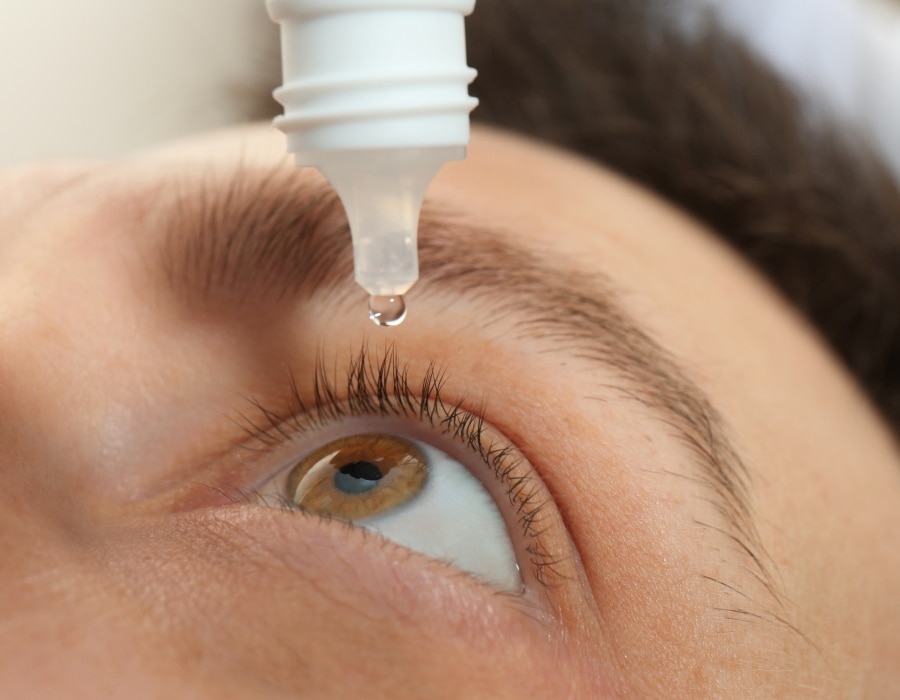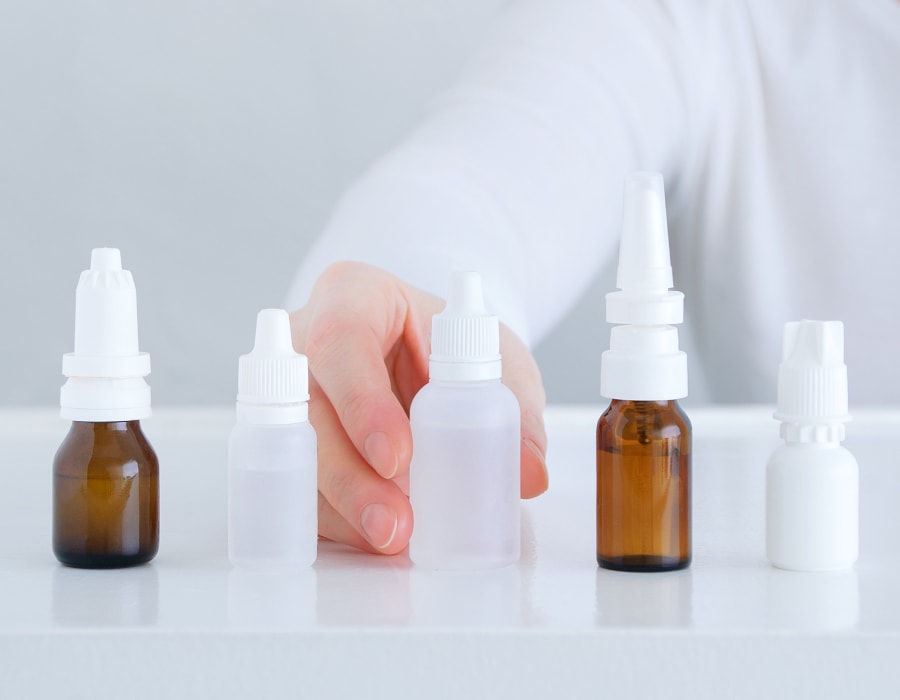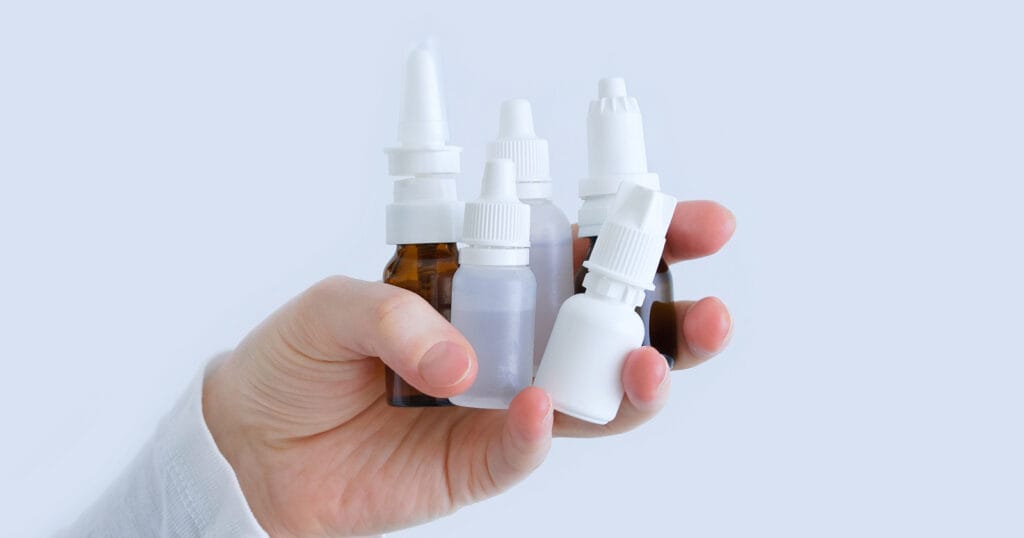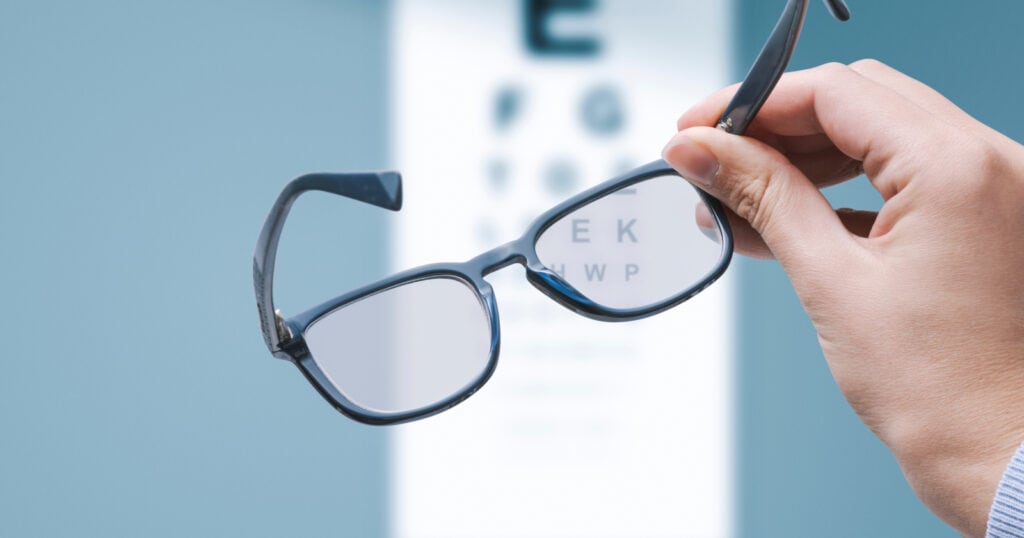Have you ever wondered, “Can I use expired eye drops?” If you have, the answer is no. Because the ingredients in expired products can grow bacteria and become contaminated or weakened, you should not use prescription or over-the-counter drops past their expiration date.
It’s important to read the information that comes with your eye drops, including the label and package insert. This will tell you how to store the drops properly and how long you can use them after opening the bottle.
Read on for an overview of eye drops, what they’re used for, and why you shouldn’t keep them after they expire.
What Are the Different Types of Eye Drops?
Several types of ophthalmic drops are used in clinical settings. For example, your doctor may administer dilating drops to enlarge your pupils before conducting a dilated eye exam. A surgeon may apply numbing drops to your eyes before a procedure to help prevent pain.
At home, you may have used antibiotic eye drops, allergy relief drops, artificial tears, whitening drops, and/or drops to treat certain conditions. Some drops are prescribed, and others are available over the counter.

Antibiotic Drops
Bacterial eye infections can cause green or yellow discharge, eye redness, pain, and other symptoms. Your doctor may prescribe antibiotic eye drops to kill the bacteria that caused the infection and provide relief. However, antibiotics are not effective against viral or allergic eye infections.
Allergy Drops
Allergy sufferers are all too familiar with red, watery, and itchy eyes. These symptoms often occur when you come into contact with allergens like pollen, pet dander, and dust. Allergy relief eye drops are designed to combat your body’s histamine response and help prevent red, itchy, and watery eyes.
Redness Relief Drops
If you have chronic eye redness, you may have come across redness relief eye drops. They contain vasoconstrictors that shrink blood vessels on the surface of your eyes to limit visible redness. These drops should be used sparingly, as overuse can make your eye redness worsen over time.
Prescription Drops
Certain eye conditions, such as glaucoma and dry eye disease, are sometimes treated with prescription medicated eye drops. A doctor may prescribe pressure-lowering drops to treat glaucoma or anti-inflammatory drops to relieve dry eye symptoms.
If you are prescribed medicated drops, it’s very important to follow the instructions for use exactly as they are given. Contact your eye doctor promptly if you experience any side effects.
Why Do Eye Drops Expire?
All medications have a shelf life. But liquids like eye drops are more prone to growing bacteria than tablets or capsules. Using contaminated drops can be harmful to your eyes, no matter how mild the ingredients seem to be.
Additionally, the preservatives in eye drops can break down and become less effective over time. And if you’re using eye drops to treat a condition, it’s crucial that your medication works properly!
Some drops don’t contain preservatives, so they don’t prevent the growth of bacteria. Because of this, preservative-free eye drops should be thrown out within 24 hours of being opened. They are often packaged in small, single-use containers so you aren’t inclined to keep them any longer.
When Do Eye Drops Expire?
The expiration date for eye drops can be found on the bottle or the box that they came in. Most drops contain preservatives that prevent bacterial growth for a certain amount of time. These ingredients help keep them safe to use until the printed best-by date — as long as they are stored properly and left unopened.
Once you open the bottle, a new type of expiration date may go into effect. Depending on the ingredients, ophthalmic drops may expire a certain number of days after they are opened. The label or package insert should state how many days the drops can be used after opening.
Individually packaged, preservative-free drops should be thrown away within 24 hours after being opened.
What Happens If You Use Expired Eye Drops?
Preservatives are added to eye drops to prevent the growth of bacteria. But as they approach the listed expiration date, the preservatives start to break down and become more susceptible to bacterial growth.
Using eye drops that have weakened ingredients can be less effective in treating a condition. In some cases, it can also have a negative effect on your eyes. For example, if your eyes come into contact with bacteria or germs through expired drops, it could lead to infection, irritation, and other eye issues.
For the best and safest results, always follow the instructions included with your eye drops and check the expiration date on the bottle before opening it for the first time. Dispose of any drops that may have been contaminated or improperly stored. If you’re unsure if a product is still good, it’s better to err on the side of caution. Throw it out and get a new bottle.
If you use expired or contaminated eye drops by mistake, be sure to monitor for any symptoms you may develop. This might include discomfort or irritation. You should contact your eye doctor if you experience either (or any other symptoms).
When in doubt, ask your eye doctor about the best practices for your eye drops. You can also ask a pharmacist about over-the-counter and prescription products.

What Are the Risks of Using Expired Eye Drops?
Is it bad to use expired eye drops? It can be. Using expired eye drops can be a risk because of two significant factors: contamination and weakened ingredients. Placing drops with contaminated or weakened ingredients in your eyes can lead to the following:
- Eye irritation or discomfort
- Eye infection due to bacterial exposure
- Reduced medication strength
Preservatives in eye drops can break down and become less effective over time. If you use the drops for a certain condition, these weakened ingredients may not be adequate for treating the issue. Eye drops can also become contaminated due to improper handling.
For best practice, you should:
- Always wash your hands with soap and water before applying drops.
- Never touch the tip of the bottle with your fingers.
- Never press the tip of the bottle directly against your eye.
- Ensure the bottle is sterile.
- Follow the directions on the packaging for your specific drops for proper application and storage.
Whether you’re using prescription or over-the-counter eye drops, always double-check with your pharmacist or doctor if you have any questions or concerns.






